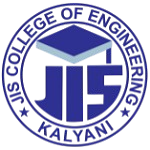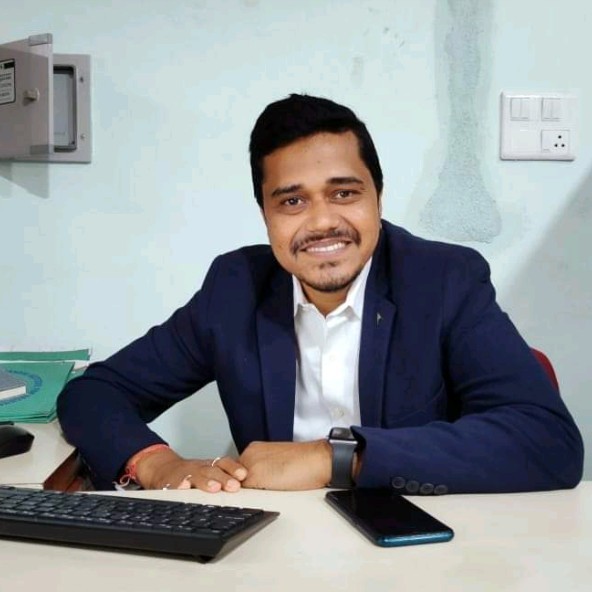
Meet our faculty
 Dr. Sitanath Biswas
HOD CSE(AIML) & CST, JISCE
Dr. Sitanath Biswas
HOD CSE(AIML) & CST, JISCE
The vibrancy of the Department of CSE (AIML) & CST at JIS College of Engineering stems from the collective expertise of our faculty, staff, and students. Our faculty members hail from esteemed universities and industries, boasting specialized knowledge spanning various domains of computer science, artificial intelligence, and machine learning. We take pride in our top-tier lab facilities and software exposure provided to students. We especially with a focus on AI and ML, stands as a cornerstone discipline in today's technology-driven world. This encompasses everything from data analytics and natural language processing to advanced robotics and autonomous systems. Beyond its technical aspects, our Department holds a pivotal role in modern society, ensuring the provision of innovative solutions for industries such as healthcare, finance, transportation, and more. Its diverse sub-disciplines, from software engineering to cybersecurity, address crucial aspects of our digital infrastructure and technological advancements. At JIS College of Engineering, our CSE (AIML) and CST departments equip students with comprehensive knowledge and practical skills essential for navigating the challenges of the real world. Join us and embark on a journey towards a rewarding career in computer science and engineering, making a tangible impact on our world through innovation and technology.
Vision : To lead in the field of Artificial Intelligence and Machine Learning by cultivating a generation of engineers equipped with comprehensive, ethical, and adaptable expertise. Our vision is to excel in technology education and research, serving society with integrity and innovation, and nurturing individuals committed to making a positive impact on humanity.
Mission : Department's Mission is to :
M1- Foster an environment that cultivates industry-ready professionals, researchers, and entrepreneurs through advanced courses in cutting-edge technologies and state-of-the-art laboratory experiences.
M2- Enable faculty to engage in progressive research and mentor students in emerging themes, fostering excellence in both teaching and research.
M3- Implement capacity development initiatives focused on skilling, upskilling, and reskilling for faculty and students while fostering a strong commitment to professional ethics in technology and innovation.
M4- Cultivate problem-solving abilities, team-building skills, and a commitment to lifelong learning
while instilling a strong sense of societal and ethical responsibilities.
M5- Cultivate excellence by enhancing curricular, co-curricular, and extracurricular activities by implementing best practices to foster personal and professional growth, ensuring all excel in technical skills and ethical standards.
PO2. Problem analysis: Identify, formulate, review research literature, and analyze complex engineering problems reaching substantiated conclusions using first principles of mathematics, natural sciences, and engineering sciences.
PO3. Design/development of solutions: Design solutions for complex engineering problems and design system components or processes that meet the specified needs with appropriate consideration for the public health and safety, and the cultural, societal, and environmental considerations.
PO4. Conduct investigations of complex problems: Use research-based knowledge and research methods including design of experiments, analysis and interpretation of data, and synthesis of the information to provide valid conclusions.
PO5. Modern tool usage: Create, select, and apply appropriate techniques, resources, and modern engineering and IT tools including prediction and modelling to complex engineering activities with an understanding of the limitations.
PO6. The engineer and society: Apply reasoning informed by the contextual knowledge to assess societal, health, safety, legal and cultural issues and the consequent responsibilities relevant to the professional engineering practice.
PO7. Environment and sustainability: Understand the impact of the professional engineering solutions in societal and environmental contexts, and demonstrate the knowledge of, and need for sustainable development.
PO8. Ethics: Apply ethical principles and commit to professional ethics and responsibilities and norms of the engineering practice.
PO9. Individual and team work: Function effectively as an individual, and as a member or leader in diverse teams, and in multidisciplinary settings.
PO10. Communication: Communicate effectively on complex engineering activities with the engineering community and with society at large, such as, being able to comprehend and write effective reports and design documentation, make effective presentations, and give and receive clear instructions.
PO11. Project management and finance: Demonstrate knowledge and understanding of the engineering and management principles and apply these to one’s own work, as a member and leader in a team, to manage projects and in multidisciplinary environments.
PO12. Life-long learning: Recognize the need for, and have the preparation and ability to engage in independent and life-long learning in the broadest context of technological change.
PSO1: The ability to understand, illustrate, discuss, explain the fundamental design and working principle of any existing system or new computing model or concept related to the field of computer science and technology and artificial intelligence with machine learning.
PSO2: To design and conduct experiments, as well as to analyze and interpret data.
PSO3: The ability to design, implement and analyse a solution proposal with proper documentation demonstrating adequate technical skill along with the necessary concept for driving propensity towards technological innovation.
PEO1: Graduates will apply their knowledge and skills to succeed in their careers and/or obtain advanced degrees.
PEO2: Graduates are prepared to take up Masters/Research programs.
PEO3: Graduates will demonstrate a strong foundation in computer science principles and advanced knowledge in artificial intelligence and machine learning, enabling them to solve complex problems in diverse domains.
PEO4: Graduates are prepared to be good entrepreneur and responsible social representatives.
‘Education is not the filling of a pot but the lighting of a fire.’ –W.B. Yeats
Traditional teaching enhanced with application of latest technology.
Help the students to build strong foundation.
Learning through video or images are much more effective than through text.
Brushing on skills of giving presentations which is followed by soft skills.
Training is given to the students to make their base strong enough to tackle the questions of the interviewers or to crack the coding round.
Aptitude is the first step to crack the campussing. Special training is given to the students to solve quantitative aptitude, logical reasoning and english with proficiency.
Copyright © 2023 Dept. of AIML & CST, JISCE . Designed & Developed by Chirag Nahata and Snigdha Ghosh